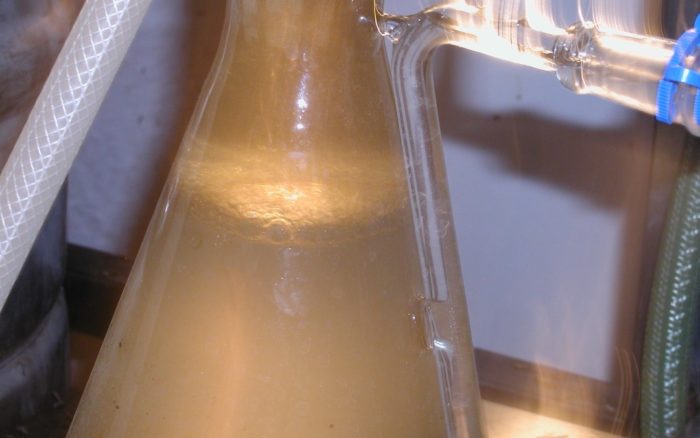Deciding Which: a Hydrosol or an Essential Oil?
Cristin McDonnell has studied Ayurvedic medicine and brings her interest in healing to our work here at Harms Vineyards and Lavender Fields. This is one of a series of her blogs on healing.
I was in the process of writing this blog when my mom called. I explained that I was trying to write about when is it best to use either an essential oil or a hydrosol. My mom said, “Wait, what about people like me who are not familiar with either?”
I was a bit reluctant to write about the difference between an essential oil and a hydrosol, as there is already so much information out there on both. Then I remembered the words of the Ayurvedic practitioner I studied with: repetition, repetition, repetition. So, if you are already familiar with both, then I guess a little review never hurts, right?
An essential oil and a hydrosol are both products of plant distillation. The essential oil is the concentrated oil from distillation and contains the oil soluble constituents, whereas the hydrosol is the water based product of the distillation process with tiny bits of the oil in suspension within it. It contains the water-soluble constituents. Consumers will be happy to know that when they purchase a hydrosol, they are getting a 100% distilled product. Hydrosols can not be manufactured synthetically in a laboratory (Rose,164).
My curiosity in writing this blog came from wanting to understand people’s preference in using one or the other. I love both. The aromatic you chose will certainly depend on your purpose for using the product. Then comes choosing which form, the oil or a hydrosol?
In my Ayurvedic studies, treatment wasn’t just a matter of learning the patient’s symptom and then prescribing an herb. It was a matter of getting to know your patient as a whole and understanding the patient’s reason for the consultation on both a physical and emotional level.
The same thought process can be applied when deciding whether to use a hydrosol or an essential oil. Knowing yourself, your skin type, and your purpose for choosing either product, will guide you in your choice. Patients that I have talked with have said that either the hydrosol or oil has given them not only a physical healing, but also an emotional healing. When you make these choices, you really are thinking of yourself holistically.
Some patients prefer hydrosols because they are typically the more sensitive of the two products. Both the essential oils and hydrosols are anti-inflammatory and antiseptic, but because of the water component, hydrosols are often more tolerable. Some find the water component makes the hydrosol soothing and refreshing. Examples of sensitive skin issues where a hydrosol may be a better choice, include treating second degree burns, and treating children and older patients.
Another patient, who typically prefers hydrosols over essential oils, suffers from a wrist injury that has been on-going for months. In treating the injury to her wrist, she found the essential oil to be a more soothing option. This is a great example in knowing yourself and what your body needs to heal.
As I mentioned before, I personally use both. There are many reasons that I use lavender essential oil, but one reason is that I am sensitive to perfumes. I can wear a fragrant essential oil without the sensitivity or headaches that perfumes give me. I prefer hydrosols for treating skin conditions that appear on my face.
When deciding between using an essential oil or a hydrosol, first think about your purpose and then give yourself a quick, holistic health examination. Consider your mind, body, spirit and then proceed to the most suitable choice of aromatherapy.
Source: 375 Essential Oils and Hydrosols, by Jeanne Rose
